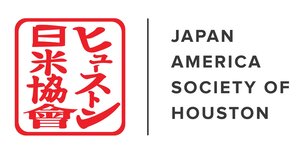JASH and the Japan Society of New York (JS) are pleased to announce a free online professional development course for teachers.
In this course, teachers will explore Japanese history from the Meiji Period (1868-1912) to the present. Divided over three interactive sessions, this 4-hour online course will provide participants with the resources necessary to reate and refine lesson plans for middle school and high school Social Studies, English and Language Arts, Global History and Geography classes.
This course is free with registration. Scroll down to access the registration form. Course capacity is 40.
Texas in-service teachers can earn four (4) CPE credit hours upon completion of the course. JASH is a Texas Education Agency (TEA) approved CPE provider.
In-service teachers will be given priority in this FREE online course.
COURSE SCHEDULE
8:45 AM | Sign-in Opens
9:00 AM | Welcome remarks by Japan Society and Japan-America Society of Houston (JASH)
9:10 AM | Morning Session 1 (30 minutes)
From Meiji to WWII
Dr. Kaoru IOKIBE
Professor, Graduate School for Law and Politics, University of Tokyo
Q&A based on video lecture shared in advance
9:40 AM | Morning Session 2 | Lecture + Q&A (70 minutes)
Post-War Japan: Occupation and Recovery
Dr. Robert FISH
Director of Global and Civic Exchange, The Master’s School, Dobbs Ferry, NY
10:50 AM | Break (10min)
11:00 AM | Morning Session 3 | Lecture + Q&A (70 minutes)
Contemporary Japan: Rapid Economic Growth and Decline
Dr. William TSUTSUI
Edwin O. Reischauer Distinguished Visiting Professor, Harvard University
12:10 PM | Closing
Assignment and distribution of resources
Ending remarks & Dismissal
Images from MIT © 2013 Visualizing Cultures and the National Archives
COURSE DETAILS
SESSION 1: From Meiji (1868-1912) to World War II
Recorded Lecture by Dr. Kaoru IOKIBE + LIVE Q&A
The Meiji period represented a major reorientation of Japan domestically, in its relations with its East Asian neighbors, and in its role in the world. Through a recorded video lecture and live Q&A session, Dr. IOKIBE will examine Japan’s growing influence on the international stage during the Meiji Period with particular focus on the relationship between the United States and Japan. Participants will gain knowledge about key topics, including the rise of Japanese imperialism, Japan’s connections to other Asian neighbors, and the economic growth and prosperity of Japan within the global economy. Participants will also explore the early Showa period in Japan, with a particular focus on political and foreign policy leading into the Asia Pacific War.
Topics to be discussed include:
Arrival of Commodore Perry
Japan’s modernization and westernization
Rise of Japan – Japan’s path to war
WWI & WWII
Nuclear War – Hiroshima/ Nagasaki and Japan’s unconditional surrender
SESSION 2: Post-War Japan: Occupation and Recovery
LIVE Lecture by Dr. Robert FISH + LIVE Q&A
Following the end of World War II, allied forces led by the United States occupied Japan bringing drastic changes. Dr. FISH will examine Japan at the end of World War II and Japan’s recovery. The session also prepares participants to teach about the occupation of Japan, its democratization under the guidance of the US, and Japan’s economic miracle between post-World War II and the end of the Cold War. Participants will also explore the industrial, commercial and artistic design movements that impacted Japan and the global economy following Japan’s growth into the world’s second largest economic power.
Topics to be discussed include:
Post-war recovery of Japan
US occupation and democratization
Constitution, education form, and economic recovery
Reconciliation and rebuilding of US-Japan relationship
Japan’s path to economic power
Japanese business and US-Japan trade
SESSION 3: Contemporary Japan: Rapid Economic Growth and Decline
LIVE Lecture by Dr. William TSUTSUI + LIVE Q&A
Through economic growth and decline, Japan has been able to maintain its status as a soft power superpower. Dr. TSUTSUI will examine Japan’s post-war economic boom and the impact of foreign relations on its economy along with Japan’s growing soft power from 50’s to 80’s, as well as during the Japan’s economic stagnation, the “Lost Decade” (1991-2000), to the present. Participants will explore youth culture through aspects such as anime, fashion, and popular film such as Godzilla and Ultra Man, as a reflection of Japanese society.
Topics to be discussed include:
Japan’s post-industrial challenges
Psychology of Japanese expressed in visual culture (Godzilla, Ultraman, etc.)
Japan as a leading cultural and soft power player
Contemporary Japan and Japan’s global relationships
THIS FORM IS NOW CLOSED. THANK YOU FOR YOUR INTEREST IN OUR ONLINE EDUCATOR WORKSHOP FROM MEIJI TO CONTEMPORARY JAPAN: COMMODORE PERRY, ATOMIC BOMBS AND GODZILLA.
ONLINE FORMAT and PARTICIPATION REQUIREMENTS:
The program consists of three units composed of pre-recorded and live video lectures prepared by experts of Japanese history, arts and culture. Each session will include ample time for Q&A, as well as useful assignments. Reading materials, primary source, and pedagogy discussions will equip teachers to use resources effectively in their classrooms.
APPLICABLE TEKS STANDARDS
§113.18. Social Studies, Grade 6, Adopted 2018.
§113.19. Social Studies, Grade 7, Adopted 2018.
§113.20. Social Studies, Grade 8, Adopted 2018.
§113.42. World History Studies (One Credit), Adopted 2018.
§113.104. Advanced Placement (AP) World History
§113.112. International Baccalaureate (IB) History of Asia and Oceania Higher Level (HL)
§113.121. International Baccalaureate (IB) Global Politics Standard Level (SL)
This program is made possible by generous funding from an anonymous funder.


